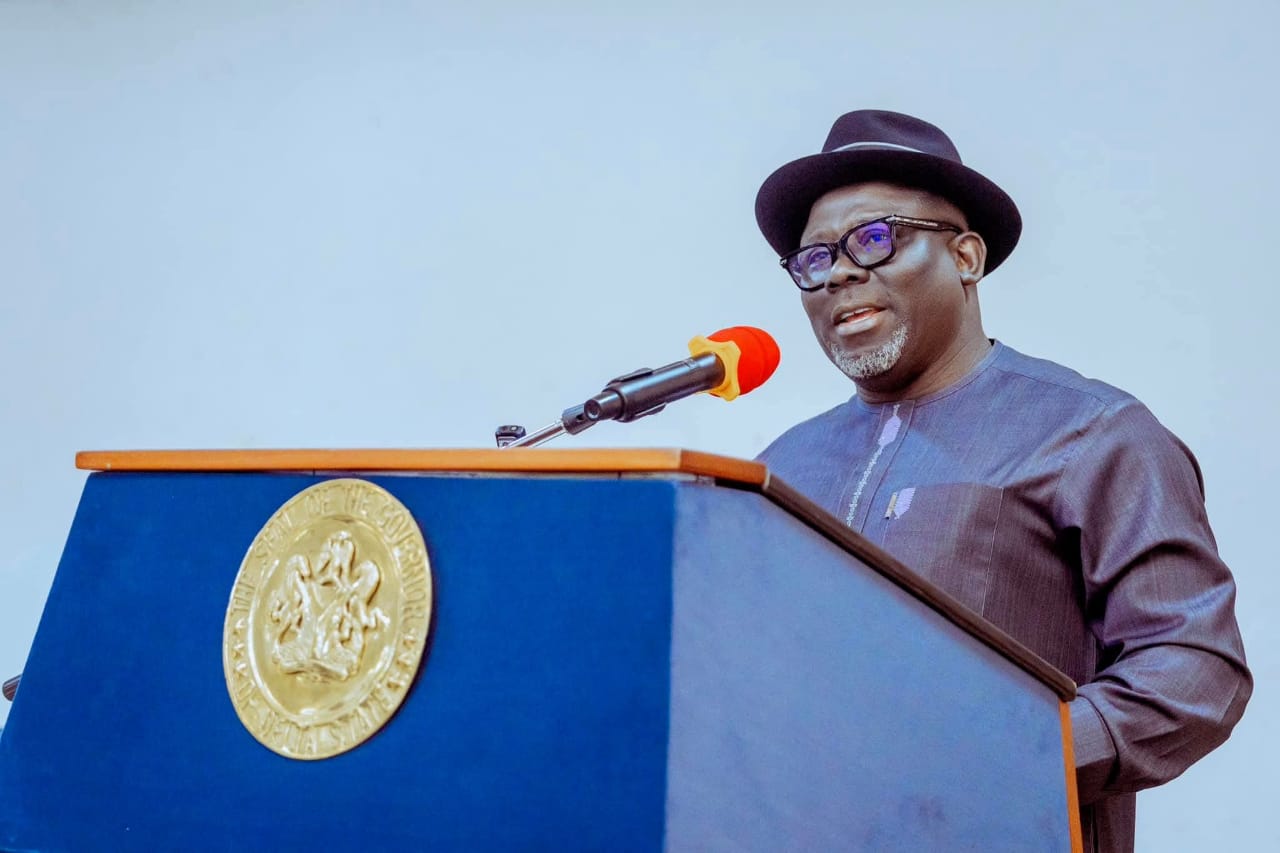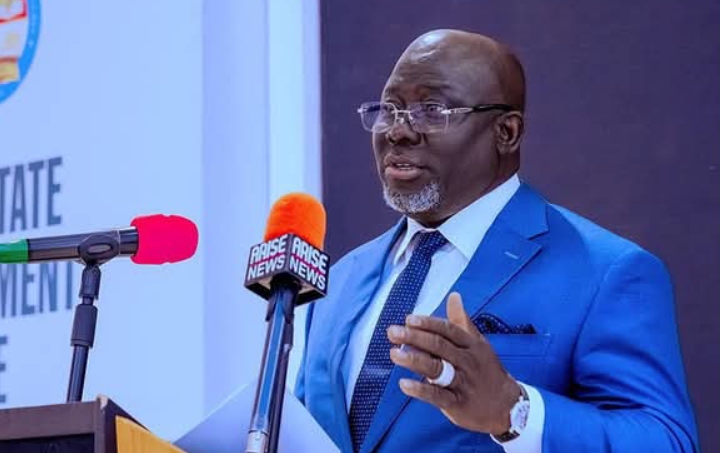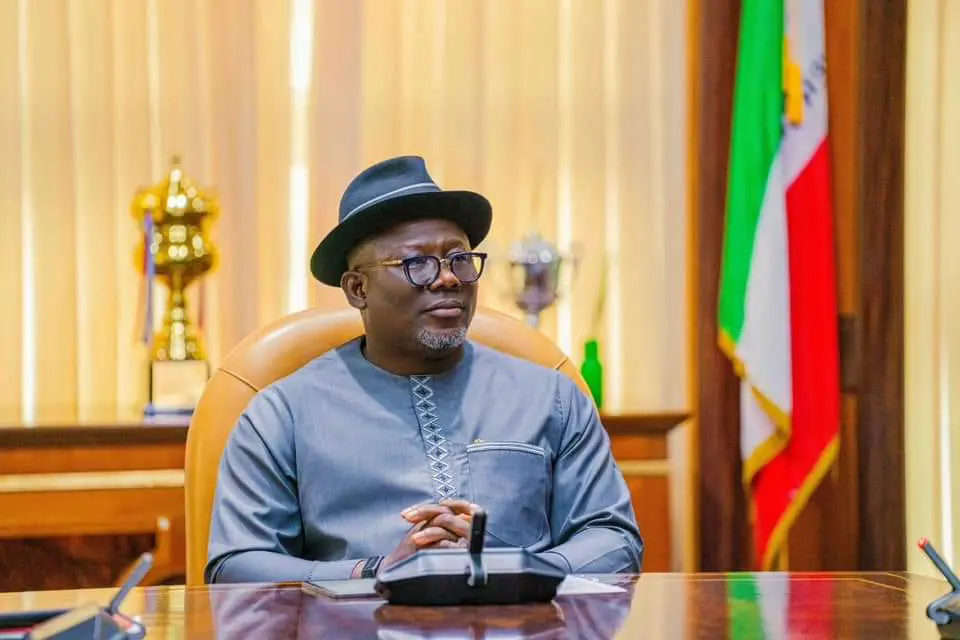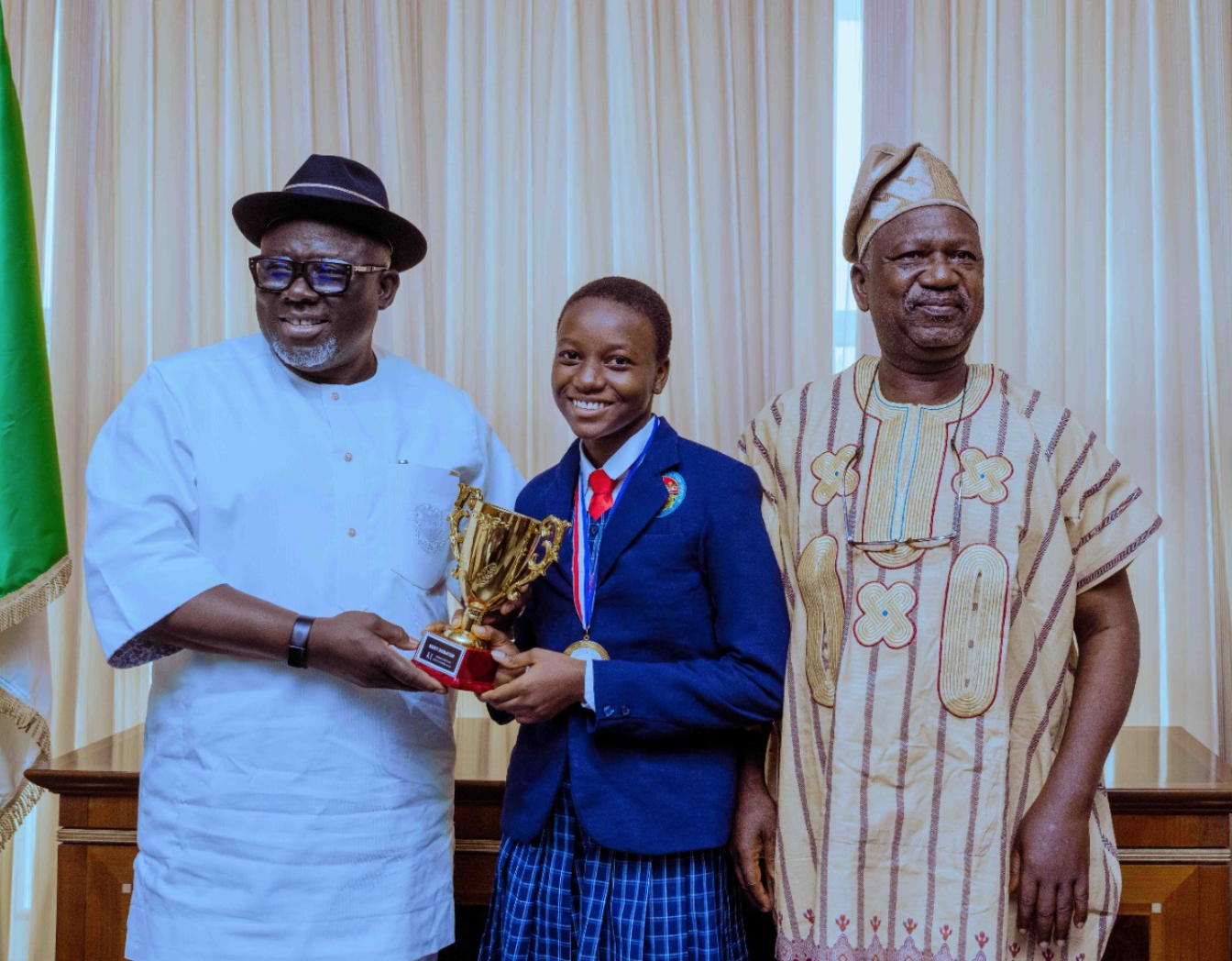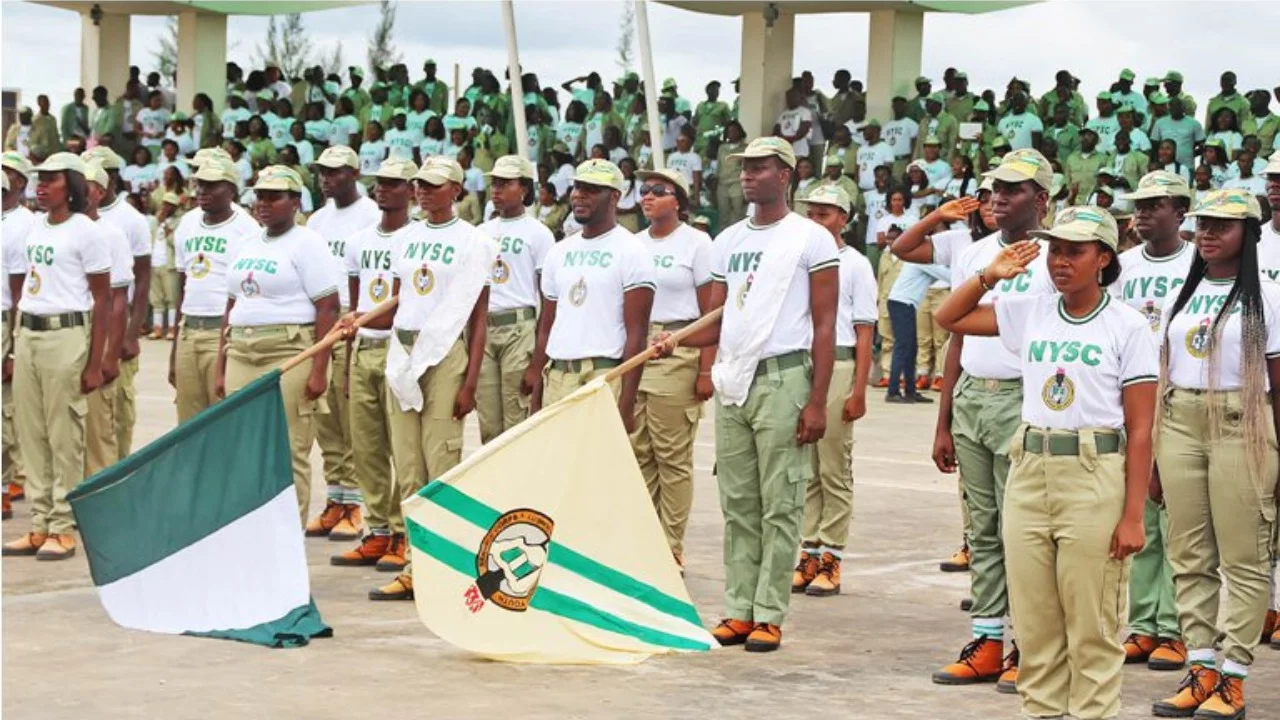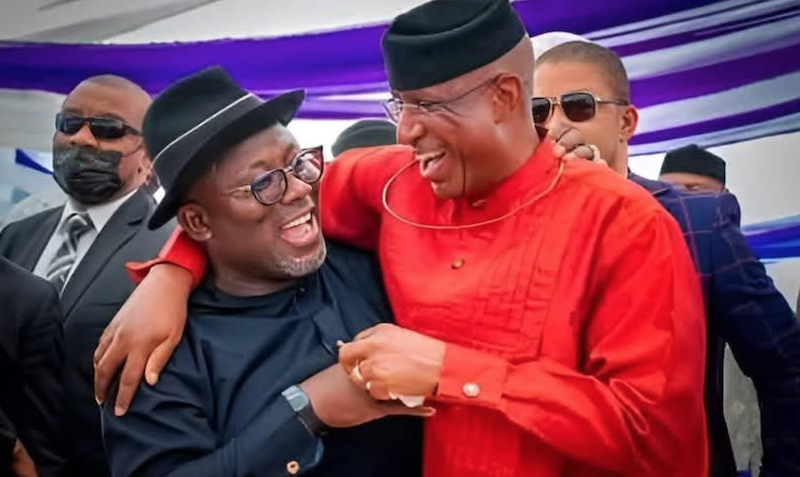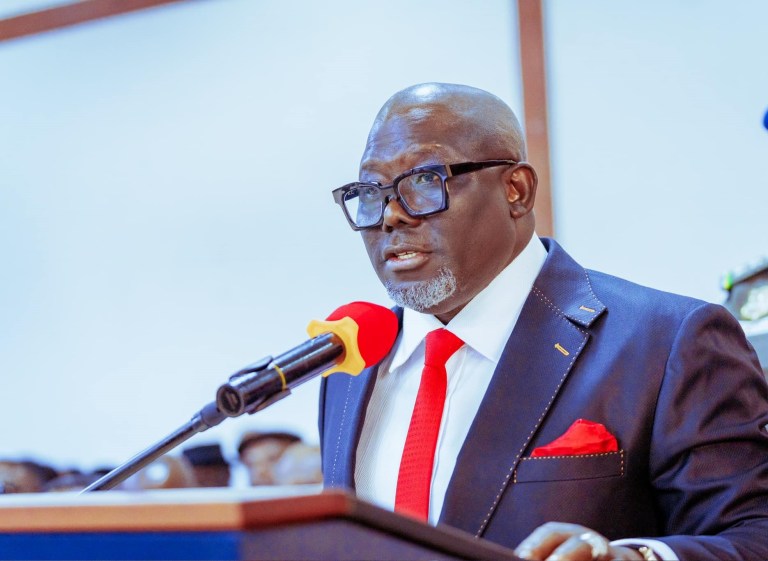By Matthew Odiete
At the mega rally for the movement of Governor Sheriff Oborevwori and the Delta State PDP family into the APC, President Bola Tinubu, represented by Vice President Ibrahim Shettima, was clear, that by constitution and tradition, the Governor becomes the leader of the party, thenceforth.
Governor Oborevwori himself clearly understood the condition of the new party and the demand on him, thus declaring right on the spot that he would not give room for factionalism, the malaise that had stunted the Delta APC for years.
Before the movement, the Delta APC had been embroiled in a fierce battle of leadership. The most recent tussle was between the former Deputy Senate President, Ovie Omo-Agege, and the Minister of Aviation and Aerospace, Festus Keyamo SAN, but the cracks resulting from a plethora of internal grieviances and suspicions had consigned the party in smithereens across the 25 local government areas and in various zones of the state.
Thus, Oborevwori had his task well cut out: not only to ensure the seamless harmonisation of the new entrants from the PDP with the existing APC members and structures, but especially to reconcile the old APC leaders, both among themselves and into the new dispensation.
While the PDP entrants are amenable and easily adaptable, the real challenge is in bringing the old APC leaders to come to terms with themselves and curb possible hangovers from their old conflicts.
At the heart of the matter is the accusation that Omo-Agege had, from 2017 when he joined the party, through 2019 when he became Deputy Senate President, deployed high-handed tactics to edge out and alienate its various leaders, consequently seizing the party structure to achieve whatever cause he chose, including organising a parallel Delta Central Senatorial primary in 2018, ensuring that he became the sole aspirant in the Gubernatorial primary in 2022, and suspending any leader who challenged his moves.
Indeed, on one occasion, an aspirant for the state chairmanship, Silas Bouwe, who was in the Great Ogboru camp, was shot at with just seven days to the ward congresses, which was to kick start the process of the party’s convention.
Worse was that Agege seemed to have applied his control of the state party structure against all reasonable group interest, including directing Delta APC delegates to vote for Ahmad Lawan, against Bola Tinubu, in the 2022 APC presidential primary when the entire South had insisted on the rotation of the Presidency to the region.
Another APC factional group similarly accused Omo-Agege of being behind the recruitment of former Central Bank of Nigeria Governor, Godwin Emefiele, into the APC, in the bid to scuttle Asiwaju’s chances.
According to them, he perepromptily ordered the Ika South APC to issue membership card to Emefiele, hoping he would use the huge funds of the CBN to challenge and stop Tinubu in the APC primaries. They suggested that it was when that did not work that Emefiele resorted to changing the design of the Niara, hoping that would cut off Tinubu’s finance and frustrate his campaign.
Even after Tinubu emerged as the APC Presidential flagbearer and had indicated that he was not upset but would rather leave Lawan to “easily lick his wounds,” various Delta APC leaders accused Omo-Agege of visibly working against Tinubu in the Presidential election proper, which they consider anti-party and treacherous.
These may account for why various old chieftains of the Delta APC abandoned him in the 2023 election and had been fiercely engaged to recover the party structure from him, post-election. It can also be understood why Festus Keyamo, as a federal minister, came out with full-chest to lead the charge.
In an attempt to wean the party of the conflicts and cracks, they had set up the Olorogun Otega Emerhor-led reconciliation committee, which recommended the constitution of an enlarged State Leadership Council, with Omo-Agege and Keyamo as co-chairmen; a similar structure across the senatorial, local governments and ward levels; and the implementation of a robust funds raising process that would ensure all leaders are involved in the funding of the party.
These were in the belief that the decentralisation of authority would enable the leaders collectively manage the processes of nominating candidates for party congresses, thereby eliminating the tendency for hijack by any single individual or group who will them foister his whims on the party structure, and so also that the party would not depend on funding by a single leader who would ultimately personalise the party.
The recommendations seemed to have been the way-forward consensus of majority of the Delta APC leaders, but it seemed ostensibly to cut the excesses of Agege.
As Lauretta Onochie, the Senior Special Assistant to former President Muhammadu Buhari, purported in her summary of the Delta 2023 Governorship election, Omo-Agege is trailed by “greed, self-centredness, egocentrism, selfishness, arrogance, boastfulness, the hate of other ethnic nationalities,” and a characteristic spirit of betrayal.
“He refused to work for Tinubu, nor use his image in his campaign messages, but quickly added Asiwaju’s images at his deserted campaign office in Asaba, after Asiwaju had won the presidential election,” Onochie wrote.
The late Cairo Ojougboh had also accused Omo-Agege of the same high-handedness and anti-party disposition.
“Omo-Agege hijacked the party and personally handpicked all executives at all levels in the state. He uses them for whatever he pleases. His intention is to cow all APC members in the state and make them his stooges,” he said before his demise.
Even more explicit was the testament of Olorogun O’tega Emerhor, easily the founding father of the APC in Delta State, being the first person to have contested on the platform of the party, in the Delta Central Senatorial by-election in 2015, while Omo-Agege rode on the ticket of the Labour Party then promoted by Great Ogboru, before he joined the APC in 2017.
“Delta APC has known no peace since Omo-Agege was welcomed to the party in 2017,” Emerhor declared.
“Upon joining APC (he) kept his group of Labour Party joiners intact and later transformed it into the Ogboru/Agege faction of today Delta APC.
“Omo-Agege’s plan from day one was to ride on the back of Chief Great Ogboru to return back to the senate. He set about this by promising Chief Ogboru of making him Delta State Governor in 2019. Against the run of play of equity and political reality, Omo-Agege sold this dummy to Chief Ogboru that power rotation and zoning in Delta State do not matter, that the Delta North do not deserve to complete their 8 years.
“Despite the well laid out plan of the mainstream APC which properly positioned over 4 strong Delta North candidates in the persons of Prof Pat Utomi, Hon Victor Ochei, Dr Cairo Ojougbo and Dr Leroy Edozien, to fly the APC flag and deliver the party in the 2019 elections, Omo-Agege succeeded in turning the National APC against the APC mainstream in Delta and had his way to foist Ogboru and himself on the party but he ended up making Ogboru a laughing stock.
“Out of 8 Delta Central LGAs, Ogboru managed to scrape through in only 2, and out of the 2, Ughelli North was substantially delivered by Olorogun O’tega Emerhor and Engr Sam Adjogbe. Emerhor and Adjogbe also delivered the two House of Assembly candidates from their constituency out of only 3 races won by APC in Delta State in the 2019 elections.
“Ogboru lost all 9 LGAs and 8 LGAs in Delta North and South, respectively. Omo-Agege was no where to be found. (He) actually sabotaged him after purportedly winning his senatorial bid. How else do you explain Omo-Agege pulling in over 10,000 votes for himself from his Orogun ward 1 in the Senatorial elections of February 23 yet, on March 9, in the Governorship elections of Ogboru, that same ward recorded under 2,000 votes only?”
With Agege out of the Senate and with a new President in charge, the APC chieftains yearned for a breath of fresh air, culminating in the recommendations of the Emerhor and Godsday Orubebe Reconciliation Committee.
Incidentally, their pragmatic recommendations were rejected by a few persons who insisted that the leadership of the party should reside solely and unfettered on Omo-Agege, having been a Governorship candidate of the party and Deputy Senate President by which he also became the South-South leader.
Among the objectors was Senator Peter Nwaoboshi, an Agege ally who won the Delta North Senatorial seat under the PDP in 2019, defected midstream to the APC, and lost the seat to Senator Ned Nwoko in the 2023 elections. They both bring a different Delta North angle to the issues in Delta APC.
Nwaoboshi had been preparing to launch a return to the senate with the support of Agege’s hold on the state structure, only to see Nwoko defect much earlier from the PDP to the APC. Since then, Nwaoboshi had been raising the alarm that Nwoko is working hard to dismantle and reconstitute the structure he met on ground to enable him edge Nwaoboshi out in the contest for the party’s return ticket to the Senate.
In Delta North, there is also unease between Agege supporters and followers of the incumbent Senator Ede Dafinone. The permutation is that with the merger of Delta PDP into the APC and the guaranteed second term for Governor Oborevwori, as already conceded by all the leaders of the APC, which conclusively extinguishes Agege’s severally unsuccessful Governorship bid, his next option may be to seek a retrieval of the seat from Dafinone.
Interestingly, Agege did not attend the recent Delta Central APC Unity rally at which the entire district endorsed and reaffirmed their support for President Tinubu and Governor Oborevwori’s second term in office.
Also smoking by the side in Delta Central is the disaffection between Agege and Chief Stella Okotete, Executive Director of NEXIM Bank and National Woman leader of the APC.
It is said that after Agege got victory at the lower courts against Ighoyota Amori for the Delta Central Senatorial seat, it was Okotete who pulled all stops to ensure that the then Senate President swore him in into Senate while the litigation raged.
She also went extra miles to ensure his re-election in 2019 but, after all that, Omo-Agege allegedly not only abandoned her but sought to render her irrelevant, save for her election as National Woman Leader.
Also in Delta South, there seems to be a cold war brewing between the incumbent Senator Joel Onowakpo-Thomas and the former Secretary to the Delta State Government, Chief Macaulay Ovuozorie, seen as a key player in the APC in Delta South, especially in Isoko Nation.
Needless to say these various shades of conflict among the old APC chieftains resulted in the balkanisation of the party structures across the zones, local governments and wards, as the various leaders struggled to take, keep and exercise control of the party in their various constituencies.
So, as it is, the issue in Delta APC is not about how to integrate the defected PDP members, but to reconcile the old APC members, so as to achieve greater cohesion, harmony and unity.
Interestingly, as a bridge builder, an apostle of peace imbued with wisdom and a craftsman in the art of unification, Oborevwori understands all the angles, sentiments and tendencies in people and party management, and has stood up to the challenge of putting all the pieces together for a united and better structured APC in Delta State.
Thankfully, he is strengthened and encouraged by the support of the people who are inspired by his visibly outstanding and resplendent performance across all sectors for the effectual development, progress and growth of the state.
Odiete, a political analyst and social critic, writes from Ughelli, Delta State
